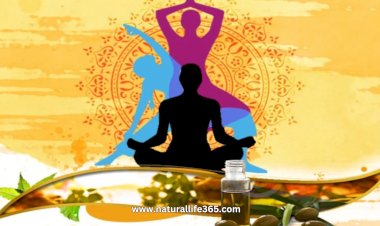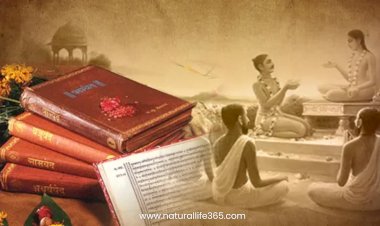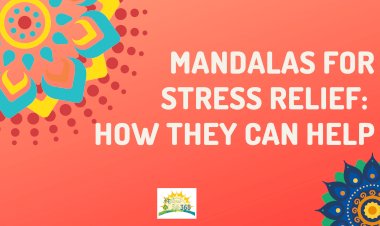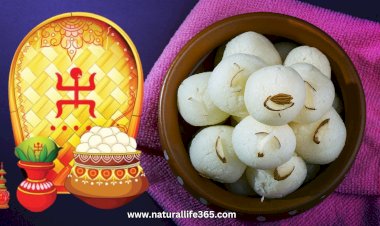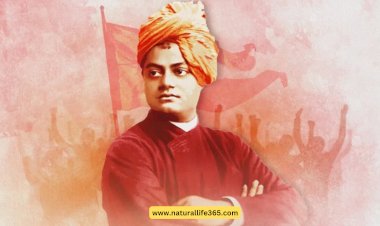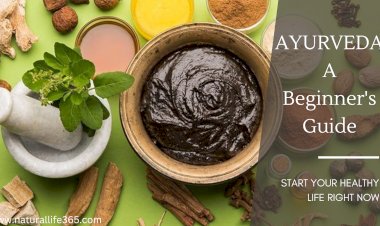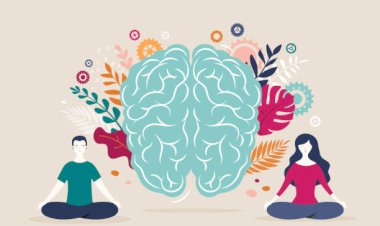Managing Stress and Anxiety with Ayurvedic Practices
Explore Ayurvedic solutions to alleviate stress and anxiety, and achieve emotional well-being through holistic remedies.

In today's fast-paced world, the weight of stress and anxiety is a common burden that many of us carry. The demands of modern life can take a toll on our physical and emotional well-being, often leaving us in search of effective ways to find relief and balance. In this sense, you can have a Stress reduction with Ayurveda because it offers a time-tested approach to tackling these challenges, focusing on holistic well-being and natural healing methods.
Ayurveda places a strong emphasis on individualized care, recognizing that each person is unique and may experience stress and anxiety differently. This personalized approach sets the stage for lasting solutions that address the root causes of stress.
Join me on this journey as we unveil the transformative potential of Ayurvedic stress reduction techniques and embark on a path to holistic well-being and tranquility.
Understanding Stress and Anxiety in Ayurveda
In the ancient science of Ayurveda, the concept of holistic health encompasses not only the physical body but also the intricate workings of the mind and spirit. Ayurveda views individuals as unique, with distinct constitutional types and imbalances. It recognizes that emotional and mental well-being plays a pivotal role in our overall health. This understanding of the mind-body connection is particularly relevant when addressing issues of stress and anxiety.
In Ayurveda, stress and anxiety are not seen as isolated or purely psychological phenomena but as manifestations of imbalances in the doshas. The doshas, Vata, Pitta, and Kapha, represent combinations of the five elements (earth, water, fire, air, and ether) and govern various physiological and psychological aspects of our being. When these doshas become aggravated or imbalanced, they can lead to an array of health issues, including stress and anxiety.
Each dosha has its unique characteristics that are associated with specific imbalances:
1. Vata Dosha: An excess of Vata can lead to restlessness, racing thoughts, and heightened anxiety. Individuals with a dominant Vata constitution may be more susceptible to worry and nervousness.
2. Pitta Dosha: Pitta imbalances can result in irritability, impatience, and a critical mindset. These individuals may be prone to intense stress and perfectionism.
3. Kapha Dosha: Kapha imbalances may lead to lethargy, emotional heaviness, and a sense of being stuck. Those with a Kapha constitution might experience stress due to attachment and resistance to change.
To address stress and anxiety in Ayurveda, the focus is on restoring balance to the doshas. Ayurvedic practices aim to pacify the aggravated dosha responsible for the symptoms. This approach involves tailored dietary choices, lifestyle adjustments, mindfulness practices, and the use of Ayurvedic stress relief herbs to restore equilibrium.
The path to emotional well-being in Ayurveda also emphasizes the importance of daily routines that foster harmony and balance. Yoga, meditation, and self-care practices are integral in nurturing mental peace and reducing the effects of stress and anxiety.
Through personalized Ayurvedic relaxation techniques, individuals can embark on a journey toward a calmer, more balanced state of being, where stress and anxiety are addressed at their roots, allowing for a more harmonious and fulfilling life.
Identifying Your Dosha and Imbalances
In the world of Ayurveda, one of the fundamental principles is the recognition that each individual is unique. This uniqueness is attributed to the predominance of specific energies known as doshas within a person's constitution. To effectively address stress and anxiety, it is essential to identify your dosha and any imbalances that may be contributing to these conditions.
Identifying Your Dosha
To identify your dosha and potential imbalances, consider the following steps:
1. Self-Assessment: Begin by taking a dosha self-assessment quiz or questionnaire, which is widely available in Ayurvedic literature and online. These assessments ask you a series of questions about your physical and psychological traits, as well as your preferences and tendencies. Your responses will help you determine your primary dosha or dosha combination.
2. Consultation with an Ayurvedic Doctor: For a more precise understanding of your dosha and imbalances, consider consulting with an Ayurvedic practitioner. They can perform a detailed assessment, which may include pulse diagnosis and observation, to provide personalized insights.
How Dosha Imbalances Can Contribute to Stress and Anxiety?
Once you have identified your primary dosha and any imbalances, it becomes easier to connect these imbalances to stress and anxiety. For example, if you discover that you have a Vata constitution and are currently experiencing high levels of stress and anxiety, you can attribute it to an aggravated Vata dosha.
The key to Ayurvedic stress management is to tailor your approach to your unique constitution and imbalances. By addressing the root cause of the dosha imbalance, you can effectively alleviate stress and anxiety. This may involve Ayurvedic stress management routines such as dietary adjustments, lifestyle modifications, mindfulness practices, and the use of specific herbs that help pacify the aggravated dosha.
Ayurvedic Practices for Stress Relief
Ayurveda offers a holistic approach to stress management that considers the interconnectedness of the mind, body, and spirit. Rather than merely addressing the symptoms of stress, Ayurvedic approaches seek to tackle its root causes and bring balance to the entire being. Next, you will find some Ayurvedic stress management tips:
Ayurvedic Dietary Guidelines for Reducing Stress
Diet plays a fundamental role in Ayurveda's approach to stress management. The foods we consume can either aggravate or pacify the doshas, the fundamental energies that influence our physical and mental constitution. Ayurvedic dietary recommendations for stress management include:
1. Balancing Your Dosha: Identifying your dosha and consuming foods that balance it. For instance, Vata types may benefit from warm, nourishing, and grounding foods, while Pitta individuals might find relief in cooling and soothing choices.
2. Mindful Eating: Practicing mindfulness during meals, including chewing food thoroughly, eating in a calm environment, and avoiding excessive consumption.
3. Avoiding Stimulants: Limiting or eliminating stimulants like caffeine and processed foods that can exacerbate stress and anxiety.
4. Herbal Support: Incorporating Ayurvedic remedies for stress like herbs and spices, such as ashwagandha and tulsi, known for their stress-reducing properties.
The Importance of Mindfulness
One of the central pillars of Ayurvedic stress management is mindfulness. This includes being aware of your thoughts, emotions, and bodily sensations. Mindfulness practices, such as meditation and conscious breathing, can help individuals regain control over their mental states, reduce anxiety, and promote emotional balance.
Ayurvedic Herbs for Stress
Ayurveda offers a rich pharmacopeia of herbs and herbal formulations that can be used to support stress management. Popular Ayurvedic herbs for stress and anxiety relief include:
1. Ashwagandha (Withania somnifera):
- Description: Ashwagandha is one of the most well-known adaptogenic herbs in Ayurveda. It is prized for its ability to reduce the effects of stress and anxiety.
- Composition: Ashwagandha contains bioactive compounds known as withanolides, which have been shown to reduce the production of stress hormones like cortisol. It also has a calming effect on the nervous system, promoting relaxation and improved sleep.
- Description: Brahmi, also known as "Bacopa," is revered for its cognitive-enhancing properties and its role in reducing stress.
- Composition: Brahmi contains compounds called bacosides, which have a calming effect on the mind. They help reduce the release of stress hormones and promote mental clarity and focus.
3. Jatamansi (Nardostachys jatamansi):
- Description: Jatamansi is known for its calming and soothing properties, making it valuable for managing stress and anxiety.
- Composition: This herb contains compounds like jatamansone and valeranone, which act on the central nervous system to reduce stress and induce a sense of tranquility.
4. Shankhapushpi (Convolvulus pluricaulis):
- Description: Shankhapushpi is considered a brain tonic in Ayurveda and is often used to alleviate mental stress and anxiety.
- Composition: The herb is rich in alkaloids and flavonoids, which are believed to have a calming effect on the nervous system. It is thought to improve cognitive function and reduce stress-related symptoms.
- Description: Also known as Holy Basil in India, Tulsi is revered for its adaptogenic and stress-reducing properties.
- Composition: Tulsi contains compounds like eugenol, which can help lower stress levels by regulating cortisol. It also acts as a mood stabilizer and promotes emotional well-being.
- Description: Saffron is not only a prized spice but also an Ayurvedic herb known for its mood-enhancing and stress-reducing qualities.
- Composition: The active compound in saffron, safranal, is believed to have antidepressant and anxiolytic (anxiety-reducing) effects, making it beneficial for stress and mood disorders.
7. Guduchi (Tinospora cordifolia):
- Description: Guduchi is recognized for its immune-boosting properties and its ability to alleviate stress.
- Composition: This herb contains anti-stress compounds that can help modulate the body's response to stressors, reducing the impact of stress on the immune system and overall well-being.
These Ayurvedic herbs for stress work through various mechanisms, including regulating stress hormones, calming the nervous system, and promoting emotional stability. It's important to note that the effectiveness of these herbs may vary from person to person, and consulting with an Ayurvedic doctor or healthcare professional is advisable to determine the most appropriate herb and dosage for individual needs.
Through personalized Ayurvedic stress reduction techniques that align with your dosha and constitution, Ayurveda offers a profound pathway to a stress-free and harmonious existence.
Yoga and Ayurveda: Combining Physical Activity with Ayurvedic Principles
Ayurveda offers a treasure trove of practices that can effectively alleviate stress and promote a sense of tranquility. These Ayurvedic stress-balancing practices recognize the interconnectedness of the mind, body, and spirit and aim to restore balance on all levels.
Yoga and Ayurveda
Yoga is not just a physical exercise but a profound system that aligns the body and mind. In Ayurveda, the combination of yoga and meditation is considered a powerful tool for stress relief. Here's how these practices can be integrated:
1. Dosha-Specific Yoga: Ayurveda acknowledges that different individuals have unique dosha constitutions. Tailoring yoga practices to one's dominant dosha can help balance the mind and body. For example, calming and grounding poses may benefit Vata types, while cooling poses can soothe Pitta individuals.
2. Meditation: Meditation helps quiet the mind, reduce anxiety, and promote emotional equilibrium. Specific meditation techniques can be chosen based on one's dosha and imbalances.
3. Pranayama: Pranayama exercises, which involve conscious control of the breath, can have a calming effect on the nervous system. Techniques like Nadi Shodhana (alternate nostril breathing) are particularly effective for stress reduction.
Ayurvedic Massage and Self-Care
Ayurvedic massage, known as Abhyanga, is a deeply nourishing and calming practice. Self-massage with warm, herbal oils can bring physical and emotional relief. The key elements include:
1. Warm Oil Massage: Applying warm oil to the body, particularly before bathing, helps relax the muscles, soothe the nervous system, and nourish the skin. The choice of oil can be tailored to one's dosha.
2. Self-Care Rituals: Self-care practices that involve nurturing the body, such as warm baths, herbal scrubs, and gentle self-massage, can create a sense of comfort and relaxation.
Mindful Eating
Ayurveda places great importance on what we consume and how we consume it. Mindful eating practices include:
1. Balanced Meals: Consuming balanced, nourishing meals that suit your dosha and promote stable blood sugar levels can prevent mood swings and stress.
2. Mindful Chewing: Chewing food thoroughly and savoring each bite can enhance digestion and create a sense of contentment.
3. Regular Mealtimes: Eating at consistent times helps align the body with natural rhythms, reducing stress associated with irregular eating habits.
Daily Routines
Ayurveda encourages the adoption of daily routines (dinacharya) that align with the body's natural rhythms. Consistent practices such as waking and sleeping at the same times each day, along with regular meal times and self-care rituals, can create stability and reduce stress.
By integrating stress-free living with Ayurveda practices into your daily life, you can effectively manage and reduce stress. These holistic approaches address the root causes of stress and promote emotional well-being, allowing you to enjoy a life marked by balance, peace, and vitality. Ayurveda offers not only relief from the symptoms of stress but also a pathway to a more harmonious and stress-free existence.
Additional Resources and References
Certainly, here is a list of books, websites, and other sources for those interested in learning more about Ayurvedic stress management strategies:
Books:
- "The Complete Book of Ayurvedic Home Remedies" by Dr. Vasant Lad. An accessible guide to Ayurvedic remedies for various health issues, including stress management.
- "Ayurveda: The Science of Self-Healing" by Dr. Vasant Lad. A comprehensive introduction to Ayurveda, covering principles and practical applications for well-being.
- "Perfect Health" by Dr. Deepak Chopra. A book that combines Ayurvedic wisdom with modern insights, offering a holistic approach to health and stress management.
- "Yoga for Your Type: An Ayurvedic Approach to Your Asana Practice" by David Frawley and Sandra Summerfield Kozak. Explores the integration of yoga and Ayurveda, helping individuals choose yoga practices suited to their dosha.
- "The Ayurveda Bible: The Definitive Guide to Ayurvedic Healing" by Anne McIntyre. A comprehensive guide to Ayurvedic principles, remedies, and lifestyle practices for health and stress reduction.
Websites:
- The Ayurvedic Institute. The official website of The Ayurvedic Institute founded by Dr. Vasant Lad, offers courses, resources, and information on Ayurveda.
- National Ayurvedic Medical Association (NAMA). NAMA's website provides information on Ayurvedic practitioners, schools, and resources for Ayurvedic knowledge.
- Banyan Botanicals. An online resource for Ayurvedic products, articles, and educational content on Ayurveda and stress management.
4. Chopra Center. Founded by Dr. Deepak Chopra, this website offers articles and courses that combine Ayurveda with modern wellness practices.
Online Courses:
- Ayurvedic Institute Online Learning. Offers online courses and webinars on various Ayurveda and mental well-being topics, including stress management.
- Yoga International. Provides online courses and articles on yoga, Ayurveda, and stress reduction.
- The Ayurveda Experience. Offers online courses and resources on Ayurveda, including Ayurvedic approaches to managing stress and anxiety.
These books, websites, and online courses are valuable resources for those looking to delve deeper into Ayurveda and learn effective strategies for managing stress and promoting well-being through this ancient system of medicine.
Remember that consulting with an Ayurvedic doctor or healthcare professional with expertise in Ayurveda is instrumental in ensuring that you receive the most effective and safe guidance for managing stress and anxiety. Their knowledge, experience, and ability to personalize Ayurvedic stress support practices to your unique constitution and imbalances can make a significant difference in your journey towards well-being and emotional balance.
If you value these free online resources provided by Natural Life 365, please consider supporting my website by sharing the blogs ![]()
DISCLAIMER:
Some of the links in this content may be affiliate links. This means that if you click on one of the links and make a purchase, I may receive a commission (at no extra charge to you). However, I only recommend products that I personally use and have tested myself. Also, understand that I have taken reasonable steps to ensure that the information on this content is accurate, but I cannot represent that the website(s) mentioned in this post are free from errors. Please, check the Affiliate Disclosure at the bottom of this website.









